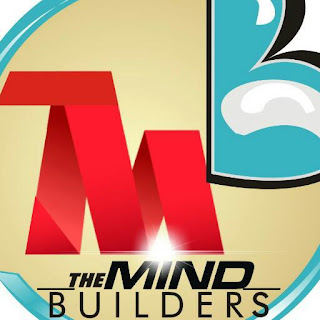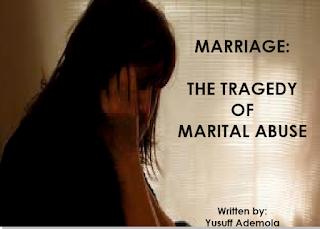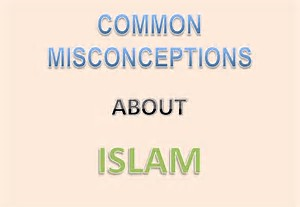Dealing with Disabled People: An Islamic View
In the
name of Allah, the Entirely Merciful the Exceptionally Merciful
INTRODUCTION
We
live in a world wherein people are rapidly facing various forms of challenges,
many of which affect the people’s physical and mental well-being and
lifestyles. Unfortunately, people with disabilities (PWDs) have fallen prey to
society’s labelling, stereotypes, misconceptions and prejudices.
These attitudes
have led to deprivation of their rights, – such as education, employment and
social service rights – mistreatment and exclusion from the main society.
Nonetheless, research studies have suggested many positive measures – such as
inclusion– to help PWDs cope with the challenges of the disability.
In
addendum, Islam being a divine religion ordained by the Ultimate Creator of
everything – Allah – does not in any way discriminate against anyone, but
rather commands social justice and equal treatment of everyone regardless of
their race, nationality, colour or status. The Quran says:
“O
mankind, indeed We have created you from male and female and made you peoples
and tribes that you may know one another. Indeed, the most noble of you in
sight of Allah is the most righteous…” (Q49 [al-Hujurat] verse 13, cited from Sahih
International Translation)
“O you
who have believed, let not a people ridicule [another] people; perhaps they may
be better than them…” (Q49 [al-Hujurat] verse 11, cited from Sahih International
Translation)
Thus,
this article aims to discuss how people with disabilities should be treated
from an Islamic perspective.
What
is disability?
The
World Health Organization (WHO) defines disability as:
“An
umbrella term, covering impairments, activity limitations, and participation
restriction. An impairment is a problem in body function or structure; an
activity limitation is a difficulty encountered by an individual in executing a
task or action; while a participation restriction is, a problem experienced by
an individual in involvement in life situations.” (World Health Organization,
Disability. Retrieved December 10, 2016 from http://www.who.int/topics/disabilties/en/)
How is
Disability Viewed in Islam?
Man’s
life is full of hardship and tribulation. It is believed in Islam that every
hardship a man experiences is a test from Allah and that there is always a
divine wisdom behinds every test. Allah
says:
“Indeed,
We created man from a sperm-drop mixture that We may try him…” Q76
[al-Insaan/Dahr] verse 2 (cited from Sahih International Translation)
“Indeed,
with hardship [will be] ease.” (Q94:6 cited from Sahih International
Translation)
Therefore,
it is advisable for PWDs to accept the fate that this is a test from Allah to
see their true colour. Accepting this will help in adapting to the challenge
and focus on other strengths given to them. When Allah deprives someone a
particular ability, He compensates him for it, by bestowing upon him other
abilities in which he excels.
Prophet
Muhammad (PBUH) said:
“If
any Muslim who suffers some calamity says, what Allah has commanded him, “We
belong to Allah and to Him shall we return; O Allah, reward me for my
affliction and give something better than it in exchange for it,”Allah will
give him something better than it in exchange…” (Narrated by Umm Salama
recorded by Imaam Muslim in Sahih Muslim, Book 4, No 1999)
How
Should Disabled People be Treated in Islam?
Research
studies have suggested numerous positive measures to help PWDs which are accord
to Islam practices. Some of these ways in which PWDs should be treated in Islam
are discussed below.
ü Inclusion
Miller
and Katz (2002) present a common definition for inclusion as:
“A
sense of belonging: feeling respected, valued for who you are; feeling a level
of supportive energy and commitment from others so that you can do your best
work.” (Hurisa G., (2008), People with Disabilities from an Islamic
Perspective)
Therefore,
PWDs should be included in the community as Islam promotes social justice and
equal treatment of every member of a community; it requires mutual respect of
fellow man, it teaches that everyone deserves to be cared for, loved and
respected and it prohibits discrimination, prejudice and exclusion from the
community.
Every
member of the community is required to show mercy to others regardless of their
health condition. Abdullah ibn Amr ibn al-As (may Allah be pleased with him)
reported that the Prophet (PBUH) said:
“Those
who do not show mercy to our young ones and do not realise the right of our elders
are not from us.” (Sunan Abu Dawood, Book 43, Hadith 171)
Historically,
Islamic community has a shining record of many examples of PWDs who were
included in the community and held a prominent status in the society. Some of
these people were:
Abdullah
ibn Maktum who was a blind Sahabah (companion of Prophet Muhammad [PBUH]), he was
among the firsts to accept Islam and he was put in charge of Madinah on several
occasions in the absence of the prophet (PBUH). Atta ibn Abi Rabah – a lame and
paralyzed man and he was the greatest Mufti in Makkah. Others include: Abu’l
Ala al-Ma’arri, Abu Uthman Amr bin Bahr (Al-Jahiz), Bashshar ibn Burd,
Ibn-Sirin, Qatada ibn Di’ama al-Sadusi, Muwaffaq al-Din Muzaffar, and Thalab. (Hurisa
G., (2008), People with Disabilities from an Islamic Perspective)
Thus,
Muslims should welcome disabled people to the open society, give them
opportunity to participate actively in the society and deal with them in the
kindest manners.
ü Reduction of Obligations and
Relieving of Burden and Responsibility
Islam
is a religion of peace and ease which does not want or cause difficulty for
anyone. Allah says:
“…Allah
intends for you ease and does not intend for you hardship…” (Q2:185 cited from
Saheeh International Translation)
Islam
considers the physical and spiritual well-being of people in its legislation.
In case of PWDs or any other form of illnesses, Islam accommodates and reduces
their obligations. For instance, it is known that Salat is read while standing
but permission is given to people who cannot stand to sit, lay or make gesture.
The Prophet Muhammad [PBUH] said:
“Pray
while standing and if you cannot, pray while sitting and if you cannot do even
that, then pray lying on your side.” (Sahih Bukhari, Vol. 2, Book 20, No 218)
Allah
says in the Quran:
“…remember
Allah while standing or sitting or lying on their sides…” (Q3:191 cited from
Saheeh International Translation)
Based
on this, the Muslim community should provide all basic needs for the PWDs and
reduce their responsibilities to only that which they can bear. The Muslim
community should establish schools for PWDs with necessary facilities to
facilitate their learning and as well provide rehabilitation centres and
medical care for them. Example of this
could be seen in the Islamic history during the Umayyad caliphate: al-Walid ibn
Abdul-Malik built first care home for the intellectually disabled. Likewise,
deaf servants were taught sign language at the Ottoman court.
Other
accommodations that could be provided for the PWDs include:
1.
Honouring
them and providing their needs. The prophet (PBUH)said:
“You are given sustenance and victory for the virtue
of those who are weak amongst you.” (Abu Dawood)
2.
Visiting,
consoling and praying for them.
3.
Islam
prohibits mocking, bullying and arrogance.
4.
Relieving
their burdens and responsibilities
5.
Teaching
them the religion with kindness and mercy
Conclusion
This table summarized how
disabled people have been dealt with in history:
21st Century
|
PWDs are struggling for their rights, they are excluded
from social services
|
20th Century
|
Struggling for rights.
Disabled activists campaigned against euthanasia.
Exclusion from society.
|
The Third Reich
|
Series of propaganda films to show how disabled people
were “useless eater”, were considered as a burden to the state and should be
sterilized.
|
Early 20th Century
|
Eugenicist ideas led to increase in institutionalization
or sterilization of PWDs.
UK mental deficiency Act of 1913 categorized PWDs as:
idiots, imbeciles, feeble minded and moral defective
|
19th Century
|
Greater segregation of PWDs.
PWDs were viewed as “worthy poor”
They became more dependent on medical practitioners
|
(Retrieved December 6,
2016 from The History of Attitudes to Disabled People, https://attitudes2disability.wordpress.com/category/uncategorized/historical-outline/
)
In the
light of the above discussion, it is understood that disabled people have
fallen prey to the society’s discrimination, stereotype, and prejudice which
have led to the deprivation of their rights in the society. However, Islam
accommodates and recognizes everyone. It propagates unity, social justice and
equality.
A
person’s worth is not based on any physical or materials characteristics but on
piety. Therefore, this is the reason participation in the community is not
restricted to some certain people, but to everyone as it has been seen in this
article how some disabled people had been given prominent status to hold and
how they had been cared for.
It is hoped that this article has provided insight in
understanding how people with disability should be treated and related to in
Islam.
Authored
by Yusuff Ademola Adesina
Perfection
belongs to Allah alone; I acknowledge any mistake or error in this article as
mine. Kindly write a feedback using the comment box. Thanks.
Follow
our blog by email. Thanks.
REFERENCE
Hurisa
G., (2008), People with Disabilities from an Islamic Perspective¸ retrieved December 6, 2016 from The
Fountain http://www.fountainmagazine.com/Issue/detail/People-with-Disabilities-from-an-Islamic-Perspective
Leanne,
D. (2013). Young Physically Disabled People’s Views on Volunteering.
Northern Ireland: Volunteer Now.
Retrieved from http://youngcitizens.volunteernow.co.uk/fs/doc/L.%20Donaghy%20%20Physically %20Disabled%20Volunteers%20%20Vol%20Now%20Peer%20Research%20 -%20July%202013.pdf
Luke,
S. (2011). Public Perception of Disabled People. London: Office for
Disability Issues.
Najah,
Z. (2014). Accessibility, Acceptance, Islamic Education: Living as a Muslim
with Disability. Retrieved from
Muslimmatter.org http://muslimmatters.org/2014/03/04/living-as-a-muslim-with-disability/
Nazi
Euthanasia Program: Persecution of the Mentally & Physically Disabled. Retrieved
from https://www.jewishvirtuallibrary.org/jsource/Holocaust/disabled.html
Rooshey,
H., Laura, C. S., & Hasan, S. (2008). Disability and the Muslim
Perspective: An Introduction
for Rehabilitation and Health Care Providers. Retrieved from CIRRIE http://cirrie.buffalo.edu/culture/monographs/muslim.php
Saheeh
International. (2010). The Qur’an English Meaning. Riyadh, Saudi Arabia:
Al -Muntada Al-Islami Trust.
The
History of Attitudes to Disabled People. https://attitudes2disability.wordpress.com/category/uncategorized/historical -outline/
World
Health Organization, Disability. Retrieved December 10, 2016 from http://www.who.int/topics/disabilties/en/
Yusuff
al-Q. (_____). Islam and People with Disabilities. Retrieved from
Onislam.net. http://www.new-muslims.info/featured/islam-people-disabilities/
Zaynab,
A. (2007). Islamic View of Disability and Autism. Retrieved December 6,
2016 from The American Muslim http://www.theamericanmuslim.org/tam.php/features/articles/islamic_view_of-disabilities_and_autism/0014698













Comments
Post a Comment